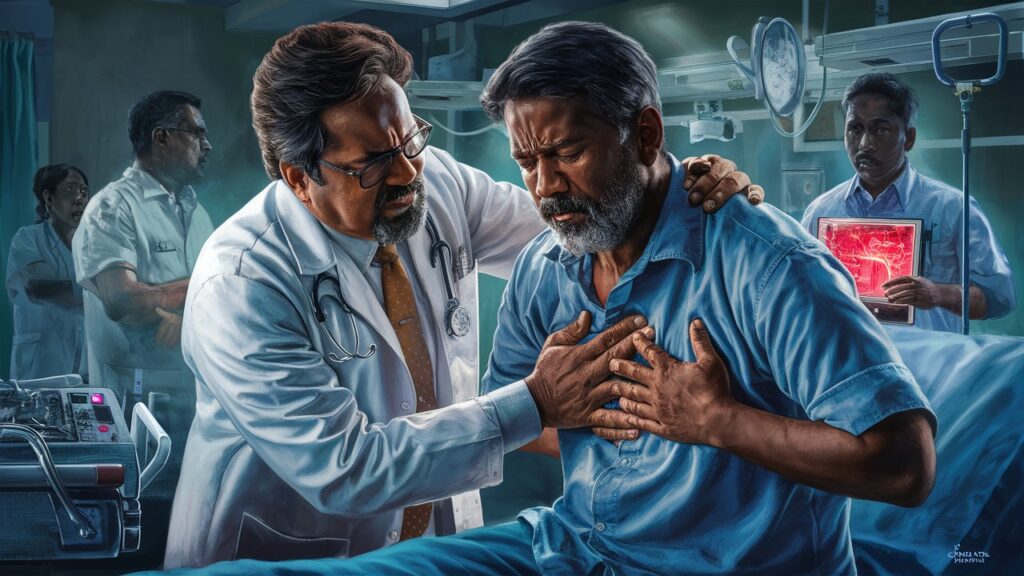
Chest pain can be scary. It can indicate many conditions. Some of them may be life-threatening. Recognizing the potential causes is key. Understanding when to seek medical attention and taking preventive measures are crucial. These steps are important for managing chest pain well. This blog post aims to give valuable information on chest pain. It covers its causes, diagnosis, and when to seek medical help right away.
Understanding Chest Pain:
Chest pain, also known as chest discomfort or angina, can manifest in various ways. It may feel like a dull ache, sharp pain, burning sensation, or tightness in the chest area. The pain can radiate to other parts of the body, such as the arms, shoulders, neck, jaw, or back.
Common Causes of Chest Pain:
Chest pain can be caused by a wide range of common, mostly benign diseases, including:
- Muscle strain or injury
- Heartburn or acid reflux
- Costochondritis (inflammation of the rib cartilage)
- Anxiety or panic attacks
- Respiratory infections (e.g., bronchitis, pneumonia)
Potentially Serious Causes of Chest Pain:
Some chest pains are not life-threatening. Others may indicate a serious condition that needs prompt medical attention. These can include:
- Heart attack (myocardial infarction)
- Angina (reduced blood flow to the heart)
- Aortic dissection (tear in the aorta)
- Pulmonary embolism (blood clot in the lungs)
- Pericarditis (inflammation of the sac surrounding the heart)
Diagnosing the Cause of Chest Pain:
Healthcare professionals perform various tests and evaluations. They do this to find the cause of chest pain.
- Physical examination
- Electrocardiogram (ECG) to assess heart function
- Blood tests (e.g., cardiac enzymes, troponin levels)
- Chest X-ray
- Stress tests
- Echocardiogram
- CT scan or MRI
When to Seek Immediate Medical Attention:
Not all chest pain is life-threatening. But, it is crucial to seek medical help if you have any of the following symptoms:
- Severe, crushing chest pain or pressure
- Radiating pain to the arm, neck, or jaw
- Shortness of breath
- Nausea or vomiting
- Cold sweats
- Dizziness or light-headedness
- Rapid or irregular heartbeat
These symptoms may mean a heart attack or other serious heart conditions. Quick medical help can save lives.
Prevention and Self-Care Strategies:
Some chest pain causes may be unavoidable. But, a healthy lifestyle can reduce the risk of developing conditions that can lead to chest pain. Preventive measures include:
- Maintaining a balanced diet and regular exercise
- Quitting smoking and avoiding second-hand smoke
- Managing stress levels
- Practicing good posture and body mechanics
- Staying hydrated and limiting alcohol intake
If you have mild, non-recurring chest pain, you can try self-care strategies. These include pain meds and rest. Also, avoiding triggers like spicy foods and hard exercise. They may help. Nonetheless, it is imperative to seek medical attention if the discomfort continues or gets worse.
By understanding the causes of chest pain, people can spot medical emergencies. They can then take steps to keep their heart healthy.
